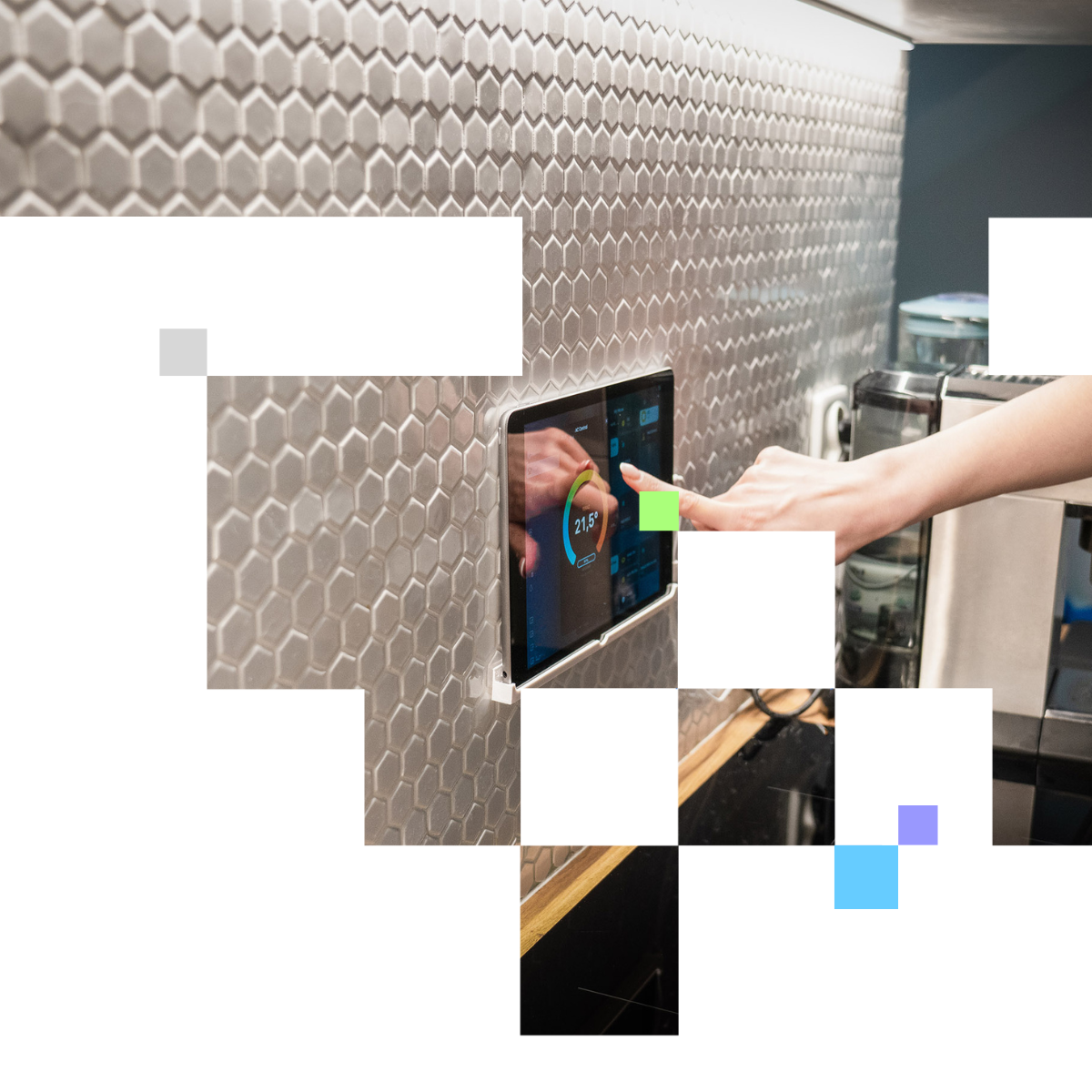The Future of Smart Buildings.
When you hear “smart buildings,” what comes to mind? A wall of flashing screens? Complicated apps you’ll never use?
A building that bosses you around?The truth is way simpler, and way more relevant to your everyday life. Smart buildings aren’t about showing off fancy tech. They’re about creating spaces that keep you comfortable, healthy, and stress-free, all while cutting waste.
And if you’re living in student accommodation, rented housing, or shared flats, this shift is going to shape your experience in the next few years.
Comfort that adapts to you
We’ve all been there: one minute you’re too hot, the next you’re shivering, and the radiator knob doesn’t seem to do anything.
Smart heating and cooling systems take that pain away. They use sensors to understand what’s happening in your room and adjust automatically. That means no more blasting the heating only to wake up sweating at 3am, or freezing while you study.
Instead, the temperature stays steady, not wasteful, not uncomfortable, just right.
Problems solved before you even notice
Here’s the cool part: smart buildings don’t just react, they predict.
Say a radiator in your block isn’t working properly. In a “normal” building, you’d either put up with it for weeks or finally complain when you can’t stand it anymore. In a smart building, sensors flag the issue straight away. The site team gets an alert, checks it out, and fixes it before it becomes a real headache.
For you, that means fewer nights spent freezing (or overheating), less mould from damp, and less time chasing maintenance.
Healthier air, better sleep
Air quality matters more than most of us realise. High CO₂ can make you groggy in class, dry air can wreck your skin, and stuffy rooms aren’t great for your lungs.
Smart systems keep an eye on all this. They can improve ventilation when levels are off, balance humidity, and generally make your living space better for your body and your brain. It’s about wellbeing as much as sustainability, because what’s the point of saving energy if everyone’s uncomfortable?
The best part? You don’t have to do anything.
Smart systems work in the background, optimising how energy is used across the building. Instead of everyone cranking plug-in heaters or opening windows when it gets too hot, the building quietly balances things out.
That means lower bills, less guilt about wasting energy, and more time to focus on exams, nights out, or just chilling.
From one flat to whole communities
Now zoom out.
One room saving energy is good. A whole building working together? That’s a game-changer.
When smart systems scale across student accommodation, office spaces, or even neighbourhoods, the combined effect is huge: less wasted energy, lower carbon emissions, and communities that are genuinely sustainable.
And here’s the kicker: you don’t have to be an eco-warrior to make a difference. Just by living in a smarter building, you’re already part of the shift.
Why this matters now
If you’re a student or young renter, you’re already dealing with rising energy costs and (let’s be honest) buildings that aren’t always designed with comfort in mind.
Smart tech is changing that. Landlords, universities, and accommodation providers are starting to see that wellbeing sells. Healthy, sustainable, well-run buildings aren’t just good for the planet, they make residents happier, more productive, and more likely to stay.
And for you, that means better living conditions without having to fight for them.
The “future of smart buildings” isn’t some sci-fi fantasy. It’s happening now, and it’s less about gadgets and more about better everyday life:
Rooms that stay comfortable without wasting energy
Maintenance issues fixed before you notice
Cleaner air and better sleep
Lower bills without extra effort
Communities that are greener by default
It’s not about tech for tech’s sake. It’s about making your home a place where you can study, sleep, and live comfortably, and know that it’s part of a bigger, sustainable future.
So next time you hear “smart building,” don’t think of cold, complicated tech. Think of a home that’s got your back.


